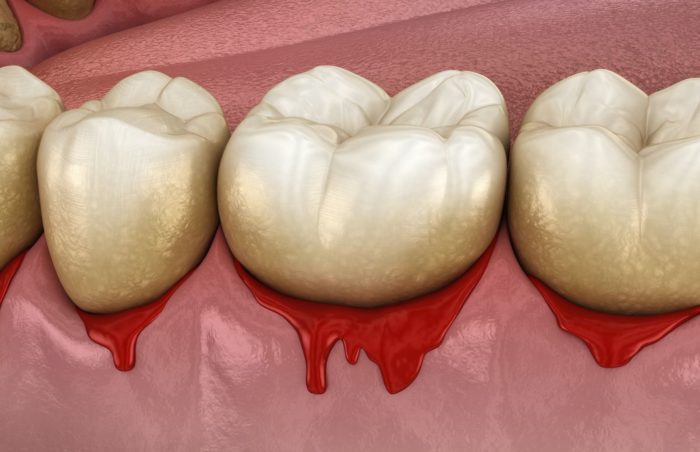Pandemic stress has led many dental patients to neglect their usual oral health regimens. This could have detrimental effects not only on your teeth and gums but to your overall wellbeing.
A recent study suggests that individuals with periodontal disease could be more likely to suffer from severe complications with COVID-19. This is due to the connection between inflamed gums and the inflammatory response of the body.
Scheduling regular dental exams can keep you safe during these trying times. Dr. Alan Dechter and Dr. Matthew Moy, a dentist team practicing in Silver Spring, MD, illustrate the importance of prompt treatment for periodontal concerns.

Early Signs of Gum Problems
Gum disease occurs when natural bacteria from your mouth spread to infect your gums, deteriorating gum tissue and harming your teeth in the process. If left untreated, gum disease can lead to tooth loss and other severe dental damage.
Many patients with periodontal disease do not experience recognizable symptoms and are unaware they have this condition. Dentists check your gums during routine dental exams and can catch and treat periodontal issues early.
Some individuals notice swollen, sore, or bleeding gums if they have gum disease. While these symptoms could stem from acute conditions, you should consult a dental professional if they continue.
Periodontal Treatment Options
If your dentist determines that you have gum disease, they will likely want to complete a thorough cleaning of the affected gums. This involves removing excess bacteria in the targeted area, including the gum pockets.
Extensive periodontal cleaning is referred to as scaling and root planing. If the condition persists after this treatment, your dentist may recommend oral surgery to treat diseased gum tissue.
They may also stitch gums tighter to the teeth to lower the risk of bacteria infecting the area. The dentist may suggest that you use an antibacterial mouthwash to balance bacteria on a regular basis. Preventative care through proper oral hygiene habits can lower your risk of contracting gum disease.
